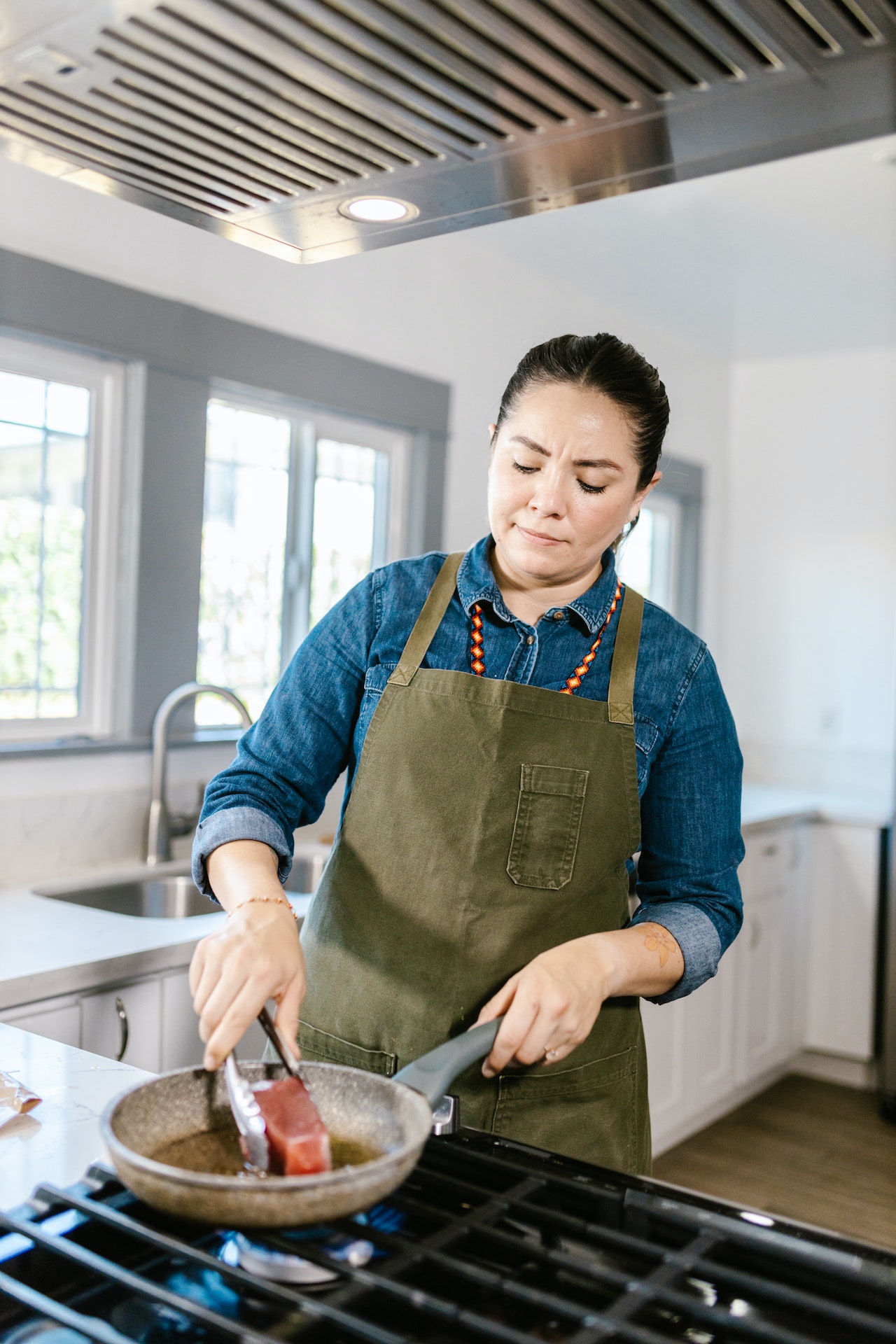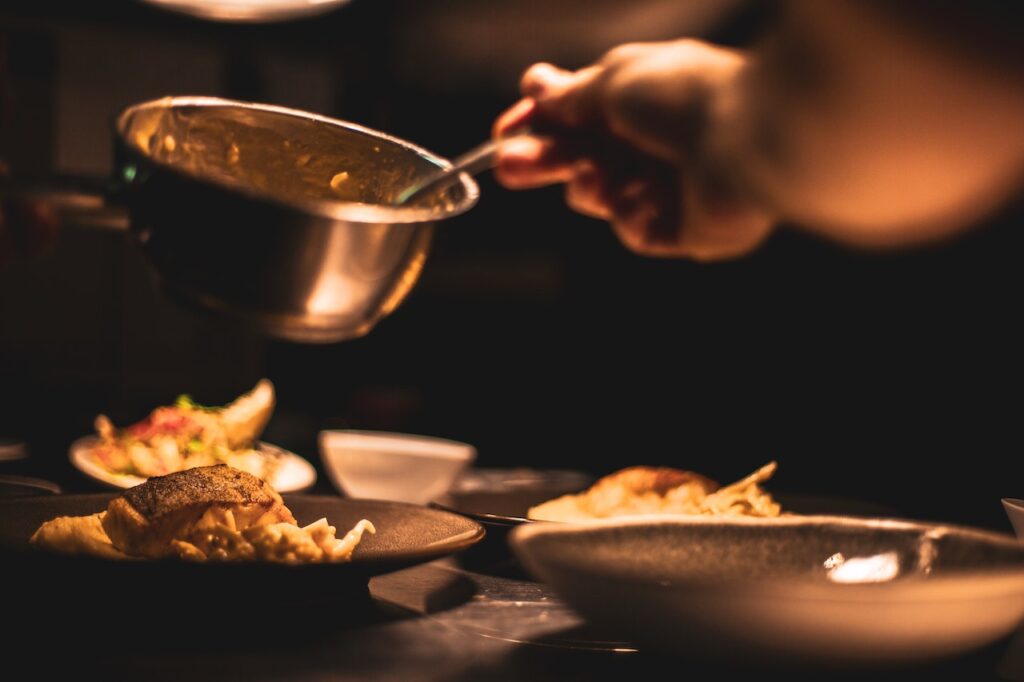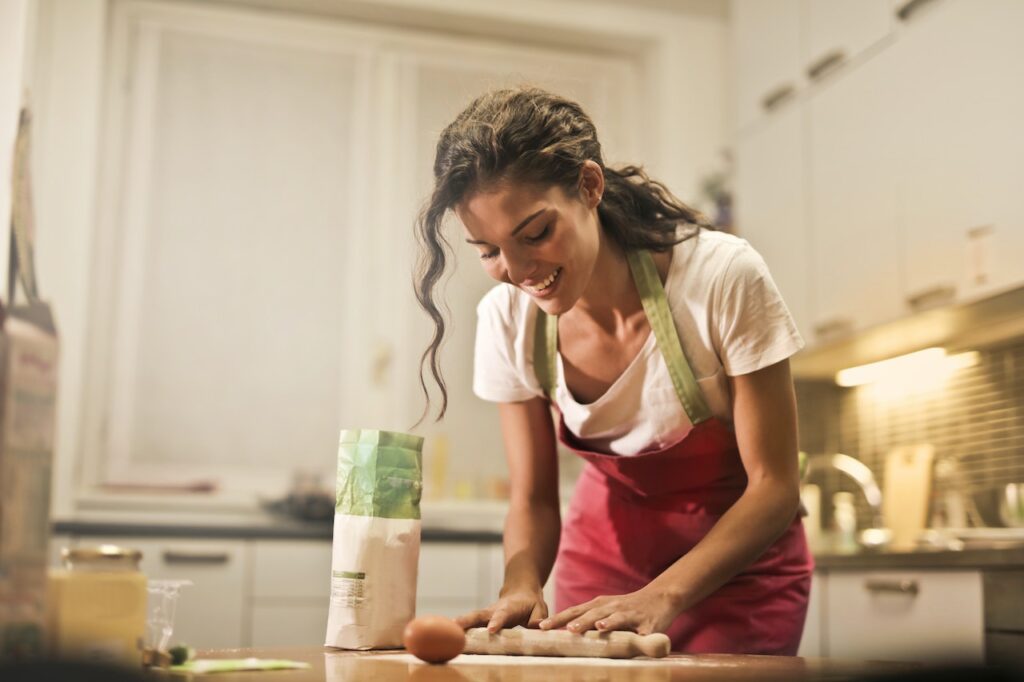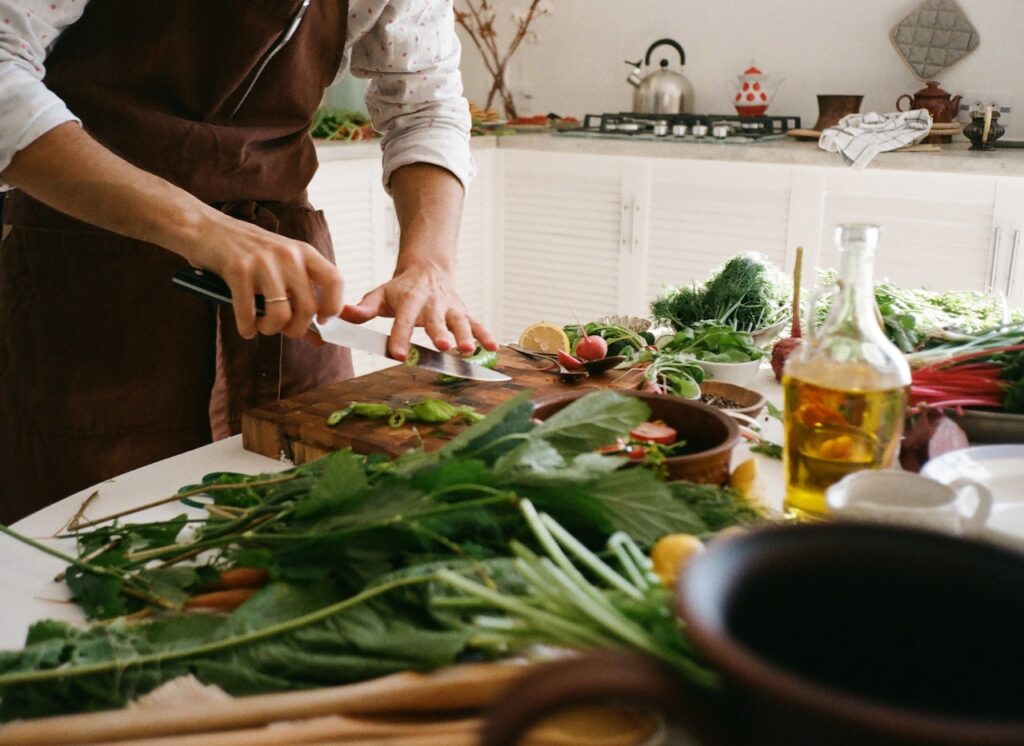Cooking professionally is a dream that a lot of people have. Whether they want to work in a fast-paced kitchen, be a private chef or sell products they make in their own home, the desire to turn a passion into a career is a common one.
A lot of people have fallen in love with ingredients and cooking and want to be a professional in the kitchen, or learn how to make the most delicious recipes. But taking your cooking skills to a professional level isn’t always as simple as you might hope.
It can be very competitive and often involves working in high-pressure environments – and that doesn’t suit everyone. Of course, there are different levels so that you can find something that does suit you. And if you’re willing to put your mind to it, you can achieve your goals in many ways too.
Table of Contents
Look for Work Opportunities
Naturally, if you want to up your cooking skills to a professional level, it makes sense to look for jobs you might be interested in. If you’ve never worked as a chef or cook before, you’ll often need to start at the bottom.
This is especially true if you don’t have any culinary qualifications. That might mean you start off being the person preparing ingredients or even washing the dishes. You might have to work front of house or unload the deliveries. But the more time you spend in and around a kitchen, the more opportunities you will have to learn and to work your way up the ranks.
Get Certified in Health and Hygiene
Whether you decide to take on a career in the food industry or not, it’s smart to brush up on your knowledge of food hygiene and handling. In many places, you’re required to take a food handlers’ course if you’ll be working with food as part of your job. This is fairly straightforward and if you’re interested in working with food, you should sail through it.
But even if you’re only cooking at home and not in a restaurant, you still need to know about how to handle, prepare and store food as safely as possible. There’s a lot to learn, from how to deal with raw meat and fish to what temperature your fridge needs to be for safe food storage and how long you can safely store various ingredients and prepared dishes.
Take a Culinary Course
If you want to get a good foundation in culinary skills, taking a course is one option you have. You’ll find that there can be different opinions on the usefulness of culinary school, with some people believing it’s better to learn on the job. But it all depends on what your goals are and which course you choose.
Some of them could prepare you for a culinary career better than others will. While some courses can teach you some fun and interesting skills, they might not be the best to help you kickstart a career in professional kitchens. So it’s important to do your research, especially as many courses can get pretty expensive. If you’re on a budget, you will want to make sure you choose the most relevant cooking courses.
Learn from Home
You don’t have to attend a fancy course or culinary school to learn valuable culinary skills – that is a myth, especially these days when you can find pretty much everything accessible online.
You really can learn a lot without ever having to leave your home. Plenty of resources are available, offering you the information you need to teach yourself some new skills. You can watch professional chefs on TV or online videos, which can be a great way to learn visually. The more cooking videos you watch, the more culinary knowledge you will absorb. Every cook and every chef is different.
Now, if you want to learn something like better knife skills, being able to watch someone demonstrate is really useful. You can pick up plenty of tips for everything from which ingredients go together to how you can safely experiment with flavors and what the latest food trends are.
Understand the Ingredients You Use
A good chef (or cook) needs to know the ingredients they’re using, in order to take their cooking skills to a professional level and be a success in the kitchen. You should know what an ingredient is if you’re going to be using it in a recipe, and how to cook or prepare that ingredient to bring out its naturally beautiful flavor, as well as what it pairs well with.
Now, that’s not to say you can’t cook with ingredients that you don’t eat yourself. Chefs do sometimes cook with ingredients they don’t personally have a taste for or even can’t eat themselves (for religious reasons, because of allergies, and so on). But you do need to be familiar with what different ingredients are, where they come from, how to handle them, and the different ways you can use them.
You could explore ingredients by trying out new recipes, visiting places where certain ingredients are produced or buying things you’ve never tried before. There are even some ingredients you can go foraging for, to really understand where they come from.
The best chefs and cooks are those who are experimental and love to try new ingredients and new cooking techniques, to discover for themselves what works, what kind of works but needs a tweak, and what absolutely doesn’t work. Cooking is all about letting your imagination soar in terms of flavor and culinary appeal – and yes, it can be a lot of fun to experiment with ingredients.
Pick Up Some Essential Prep Skills
When you cook at home, you often have at least some of your ingredients prepared for you. This can be the case with meat and fish especially, since it’s easy to buy them prepared or ask a butcher or fishmonger to prepare them for you.
But if you want to improve your skills, knowing how to properly prepare your own ingredients can be really a valuable lesson. You might decide to learn some basic butchery skills or even improve your chopping skills so you can perfectly chop things into different sizes. These skills can tie into learning about different ingredients too, since various ingredients need to be prepped in different ways.
Invest in Better Tools
The tools you have aren’t the be-all and end-all of how well you can cook, but it would be naive to pretend they don’t make a difference. You don’t need to have all of the latest gadgets in your kitchen, but there are some basics that will always prove helpful.
One thing you definitely do need, whatever type of cooking you’re doing, is some decent knives, as well as something to sharpen them with. Keeping your knives sharp is an absolute must if you want to be able to prepare ingredients not just accurately and neatly but also safely.
Other essential tools include good-quality chopping boards, peelers, spatulas, and a set of decent pans of course. Quality items might cost more but in the long run it will be worth it.
Be Braver with Your Choices
Following a recipe is something that most people can do. But coming up with your own dishes can be a bit trickier. You have to know what flavors and textures go together, as well as how to make your dish look good. This is an important part of taking your cooking skills to a professional level – you need to take chances on new flavor combinations.
Getting braver with experimenting will allow you to come up with your own ideas and discover what really works. You’re sure to have some dishes that don’t work or aren’t perfect just yet, but trial and error is all part of finding out what really does work. And if your mistakes are slightly wrong rather than terrible, you can always eat them!
In Conclusion: How to Take Your Cooking Skills to a Professional Level
If you are seriously interesting in improving your culinary skills and even learning to cook like a professional, you can explore a range of different ways to up your game and become a great chef or cook. Some of it you need to learn by taking a cooking course, watching cooking videos or learning from a chef. You might even start out as a pot washer and work your way up.
But, as long as you have a true passion for food and an eye (and palate) for great ingredients, and you want to take your cooking game up a notch or several, there are many ways to take your cooking skills up to the next level and enjoy a fulfilling career as a cook or chef, or even just learn to cook better because you have an affinity for ingredients and appreciate great food.
Images from Pexels



